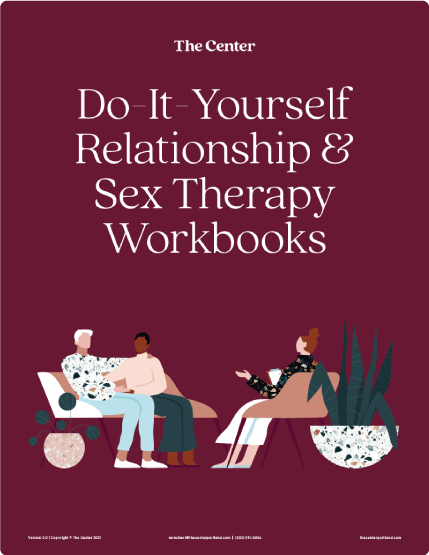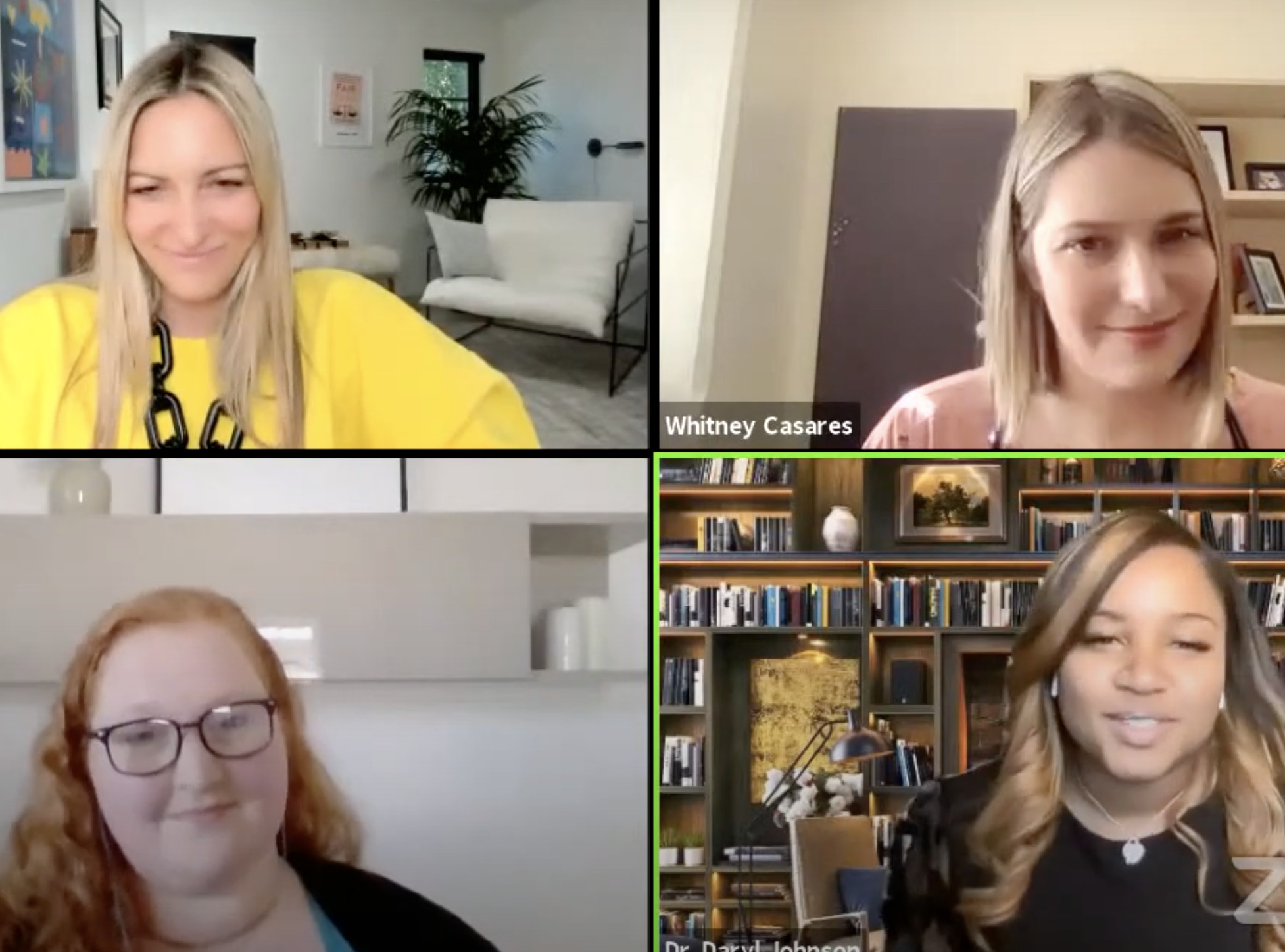Relationship anxiety can have you questioning yourself and your partner constantly. It can make you feel jealous, paranoid, and insecure. You might even start to doubt your relationship entirely.
Do you find yourself constantly worried about your relationship? Are you always anxious that your partner will leave you? If so, you’re not alone.
Relationship anxiety is very common. But it can take a toll on your mental health, wellbeing, and ultimately, your relationship.
Worried you may be struggling with relationship anxiety? Here are six common signs, plus some tips on how to overcome it.
What is Relationship Anxiety?
Relationship anxiety is a feeling of unease, insecurity, and excessive worry about one’s relationships. And it can be seen in all types of personal relationships, but is quite common in romantic relationships.
If you have relationship anxiety you may doubt your partner’s love and commitment, leading to feelings of insecurity and fear for the future of the relationship.
Even when things are going well, individuals with relationship anxiety may find themselves feeling stressed and worried about their relationship.
This can lead to obsessive thinking and behaviors, like checking in excessively, constantly needing reassurance, and even hiding their true selves out of fear of being rejected.
Like anxiety in general, relationship anxiety can be all-consuming and make it difficult to enjoy a healthy and happy relationship.
6 Common Signs and Symptoms of Relationship Anxiety
Most people feel a little nervous at the start of a new relationship. After all, you’re opening yourself up to someone new and letting them into your life. This can be scary!
Feeling a little anxious isn’t usually a reason to be concerned. But if your anxiety is interfering with your ability to enjoy your relationship and live your life, then it may indicate a more serious struggle with relationship anxiety.
Here are six signs that you may be struggling with relationship anxiety.
You Constantly Worry Your Partner Will Leave You
A good relationship makes you feel secure, happy, loved, and free to be yourself.
No one wants the person they love to leave them, but in relationship anxiety, these fears of abandonment can be all-consuming.
If you’re always worried that your partner will leave you, it can make it difficult to be more vulnerable in your relationship and enjoy each other’s company.
It can lead you to hide parts of yourself, suppress your needs, and avoid all conflict.
Unfortunately, this means you’re cultivating a relationship that doesn’t meet your needs and ultimately isn’t as fulfilling as it could be.
You Engage In Self-Silencing Behavior
Self-silencing is when you avoid expressing your thoughts, feelings, or needs in order to please your partner or keep them from getting upset.
If you are trying to avoid rejection or abandonment, you may start to self-silence in your relationship.
This can look like not expressing your needs, agreeing with your partner even if you are uncomfortable, or avoiding conflict.
While it may seem like self-silencing is a way to keep the peace, in reality, it can decrease your satisfaction in the relationship and lead to feeling resentful towards your partner.
You Overthink Their Actions
When you’re anxious about your relationship, you may start overthinking everything.
Did your partner just give you a funny look?
Why are they being so distant?
Are they thinking about breaking up with you?
You might try to read into your partner’s actions and words, looking for signs that they are going to leave you.
When anxiety is driving the bus, it’s easy to interpret things negatively and jump to worst-case scenarios. And, it’s exhausting.
If you find that you’re constantly trying to analyze your partner’s words and behaviors, stop and think. Could you be jumping to conclusions? Have you communicated with your partner about your anxiety? If not, it may be time to bring up these feelings.
You Doubt Your Partner’s Feelings For You
Another common symptom of relationship anxiety is doubting your partner’s feelings for you.
You may find yourself constantly wondering if they are really happy with you, or if they are just staying with you out of convenience.
Even if you can think of times when your partner has shown you their love. Even if you’ve both exchanged “I love you’s,” countless times—it can be hard to believe it when you’re feeling anxious.
Maybe you’re afraid that they used to love you, but not anymore.
In relationship anxiety, the doubt has a way of creeping up and settling in.
You Constantly Seek Reassurance
Frequently seeking reassurance is another sign you may be experiencing relationship anxiety.
This might look like repeatedly asking them if they’re happy with you, if they still love you, or if they see a future with you.
It can also look like needing them to check in with you constantly, or asking them to reassure you that they’re not going to leave.
While it’s normal to want reassurance from your partner, if you find yourself needing it constantly—it may be a sign that your anxiety is starting to take over.
Your Relationship Anxiety is Getting in the Way
Lastly, a big sign that you’re struggling with relationship anxiety is when your anxiety overshadows the good parts of your relationship.
You should be able to enjoy your time with your partner, but if you’re constantly worrying about them leaving you, it’s going to be hard to truly relax and enjoy yourself.
Of course, there are times that relationships may be more difficult. But overall, you should be able to look back on your time with your partner and feel happy.
If you find that you’re not able to do that, it may be a sign that your relationship anxiety is getting in the way.
Is Relationship Anxiety Normal?
If you found yourself relating to any of the above symptoms, you may be wondering if it’s normal to feel this way.
The good news is that relationship anxiety is normal and is a common experience for many people. Some have relationship anxiety near the start of a new relationship, while others may experience it even after years of being together.
So, if you’re feeling anxious about your relationship, don’t worry, you’re not alone. While it’s unpleasant, relationship anxiety is very common. And there are ways to work through it.
How To Get Over Relationship Anxiety
Can you get over relationship anxiety? The simple answer is – yes, absolutely.
If you’re currently struggling, you can overcome your relationship anxiety and live a happy, healthy life with your partner. It will take some effort and it’s not always going to be easy. But there is help.
Here are some tips on working through and moving beyond your relationship anxiety.
- they know how you’re feeling? Remember to use “I” statements to communicate your needs and feelings. This will help them understand where you’re coming from and what you need from them.
- Practice mindfulness: Mindfulness can be very helpful in managing anxiety. When those anxious thoughts start to creep up, try to acknowledge them for what they are—simply thoughts. And allow them to pass as you reconnect to the present moment with your partner.
- Build your sense of self: In a relationship, “me” often turns into a “we.” As you make space for the relationship, you may find yourself losing sight of your own hobbies, goals, and interests. Make sure to keep up with the things that make you, you. After all, your partner fell for the amazing individual that you are!
- Seek relationship anxiety therapy: If you find that your anxiety is starting to take over your life, it may be time to seek out professional support.
When To Seek Relationship Anxiety Therapy
Therapy can be an effective treatment for relationship anxiety. If you’re struggling with relationship anxiety, seeking out a professional can help both you and your partner build the connection you’re looking for.
By seeing a therapist for relationship anxiety you can explore the root of your anxiety and learn tools to manage it. Through learning effective communication and coping skills, you can start to overcome your relationship anxiety and refocus on building your relationship.
When seeking therapy for relationship anxiety, it’s important to find a skilled couples therapist. This is because couples therapists are trained to treat issues around relationships, while helping you work through the anxiety you’re facing.
Couples therapy can help you and your partner communicate more effectively, set boundaries, and learn ways to show support for each other.
If you’re not in a relationship, individual therapy can still be beneficial to help you work through the root causes of your anxiety around relationships and teach you healthy coping mechanisms.
Ready to Overcome Your Relationship Anxiety?
If you’re struggling with relationship anxiety, know that you’re not alone. We see many clients in our therapy practice with similar struggles.
We can help you work through your relationship anxiety and build the happy, healthy relationship you deserve.
If you’re ready for more ease, connection, and happiness in your relationships, contact us today to schedule a free consultation. We’ll answer any questions you have and help you get started on the path to overcoming relationship anxiety.







